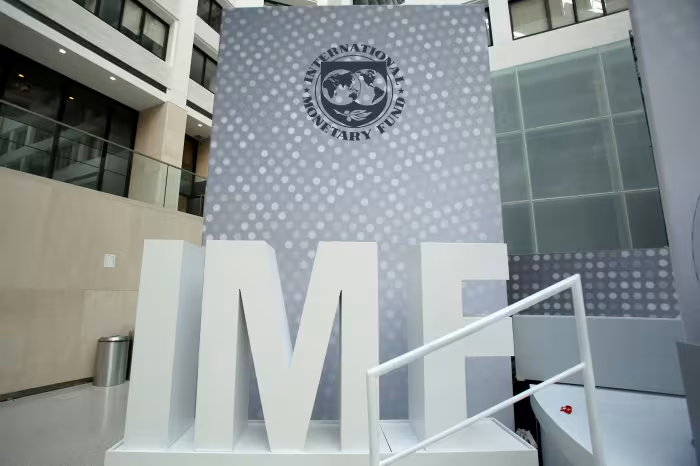Introduction
In today’s interconnected world, global events have an immediate and profound impact on major financial markets, influencing everything from stock prices to bond yields and commodity prices. Investors closely monitor geopolitical developments, economic data, trade relations, and environmental changes as these events often dictate market behavior and shape investor sentiment. The ongoing economic and geopolitical shifts are reshaping the investment landscape, leading to changes in market trends and investor confidence. This article will examine how current global events are affecting the movement of major markets and influencing investor confidence, with a focus on key developments in the global economy.
Section 1: The Ongoing Inflation Crisis and Its Impact on Global Markets
One of the most pressing issues affecting global financial markets today is rising inflation. Inflationary pressures have been particularly severe in major economies such as the U.S., the Eurozone, and emerging markets, driven by various factors, including supply chain disruptions, energy price hikes, and strong consumer demand. Central banks, particularly the U.S. Federal Reserve, have responded with aggressive interest rate hikes to curb inflation, while governments have introduced fiscal measures to offset rising living costs.
Key Effects on Markets:
- Stock Markets: Rising inflation typically leads to a sell-off in equity markets, especially in growth sectors such as technology, where higher interest rates tend to hurt future cash flows. Investors are likely to shift towards sectors like utilities and financials, which may perform better in a higher interest rate environment.
- Bond Markets: The bond market is significantly impacted by inflationary fears. As central banks raise interest rates to combat inflation, bond yields rise, and bond prices fall. The bond market, especially long-term government bonds, has seen increased volatility, with investors demanding higher yields for the perceived risks.
- Commodities: Commodities, particularly energy and metals, tend to rise in price during periods of inflation. Oil prices, for instance, have been highly volatile, driven by geopolitical tensions and supply concerns. Investors have turned to commodities as a hedge against inflation, boosting prices for gold, silver, and agricultural products.
Effect on Investor Confidence:
- Uncertainty and Volatility: The persistence of inflation has led to significant uncertainty in the markets. This environment of rising prices and tightening monetary policy has heightened volatility, making investors more risk-averse and hesitant to commit large amounts of capital.
- Shifts in Risk Appetite: While inflation is often seen as a negative for growth stocks, certain asset classes such as commodities, inflation-protected bonds, and value stocks are being viewed as safer investments during this time, which impacts the asset allocation strategies of investors.
Section 2: Geopolitical Tensions and Their Impact on Market Confidence
Geopolitical events are always a source of market volatility, and the current geopolitical landscape is particularly tumultuous. The ongoing war in Ukraine, the tense relationship between the U.S. and China, and rising concerns over Taiwan have introduced significant uncertainty into global markets.
Key Geopolitical Events:
- Russia-Ukraine Conflict: The war in Ukraine has led to energy supply disruptions, particularly in Europe, and has triggered sanctions that have affected global trade. Oil and gas prices surged as a result of supply fears, while European markets have been particularly hard-hit by the conflict.
- U.S.-China Relations: Trade tensions between the U.S. and China continue to affect global trade and supply chains. Additionally, concerns over Taiwan have led to fears of potential conflict in the Asia-Pacific region, which could have significant economic consequences.
- Middle East Instability: Ongoing political instability in regions such as the Middle East continues to affect oil prices and overall market stability, further influencing global trade and investment.
Key Effects on Markets:
- Energy Prices: Geopolitical instability often leads to significant movements in energy prices. For instance, the conflict in Ukraine has driven up natural gas and oil prices as Europe seeks to reduce its dependence on Russian energy. This energy crisis is not only pushing inflation higher but also creating uncertainty in global markets.
- Global Stock Markets: Geopolitical risks are typically negative for stock markets. Investors tend to pull back from riskier assets, leading to declines in global equities. While some sectors such as defense and energy may benefit, most sectors face headwinds as the overall market sentiment becomes more cautious.
- Currency Markets: Geopolitical tensions can also lead to shifts in currency markets. For example, the U.S. dollar tends to strengthen during times of geopolitical instability, as investors flock to the safety of the greenback. In contrast, currencies in regions directly affected by geopolitical crises, such as the Russian ruble or the Ukrainian hryvnia, experience significant depreciation.
Effect on Investor Confidence:
- Increased Risk Aversion: Geopolitical tensions often lead to a flight to safety as investors seek assets perceived as more stable, such as gold, the U.S. dollar, and government bonds from stable economies. The heightened uncertainty makes investors wary of committing to riskier assets.
- Escalating Concerns Over Global Growth: As geopolitical tensions persist, there is a growing concern that they will undermine global economic growth. Investors are increasingly focused on the potential for prolonged disruptions to trade, energy, and supply chains, leading to a more cautious approach in the markets.
Section 3: Trade Policies and Their Impact on Global Markets
Trade relations, particularly those involving major economies like the U.S. and China, continue to have a profound effect on global markets. The shifting dynamics of international trade agreements, tariffs, and economic sanctions are critical factors that influence investor sentiment and market movements.
Key Developments in Trade Policy:
- U.S.-China Trade Relations: Ongoing trade negotiations between the U.S. and China, as well as the imposition of tariffs on Chinese goods, continue to create uncertainty in global markets. The trade war has resulted in shifts in supply chains, which have affected sectors such as technology, manufacturing, and agriculture.
- Brexit and EU Trade Agreements: The impact of Brexit continues to reverberate across financial markets, particularly in Europe and the UK. Uncertainty over post-Brexit trade arrangements has led to fluctuations in the value of the British pound and volatility in European markets.
- Global Supply Chain Disruptions: Supply chain issues, exacerbated by trade policies and the COVID-19 pandemic, have caused shortages and price increases across a variety of sectors. The shortage of semiconductors, for example, has led to disruptions in the automotive and electronics industries, impacting global trade and production.
Key Effects on Markets:
- Stock Market Volatility: Trade tensions tend to cause uncertainty in the stock market. Companies with significant exposure to global trade, such as multinational corporations, often face reduced profit margins and slower growth prospects when tariffs are increased or trade relations sour.
- Commodities and Supply Chains: Changes in trade policies can also significantly affect commodity prices. For instance, the imposition of tariffs on certain goods can increase prices, while changes in trade agreements can open up new markets for agricultural and industrial products.
- Foreign Exchange Movements: Trade policies directly impact exchange rates, particularly between trading partners. For example, tariffs on Chinese goods have caused fluctuations in the Chinese yuan and the U.S. dollar, affecting companies engaged in international trade.
Effect on Investor Confidence:
- Uncertainty in Long-Term Outlook: Trade wars and protectionist policies create uncertainty about future growth prospects, particularly in global markets. Investors are concerned about the potential for supply chain disruptions and the long-term effects of trade restrictions on global economic growth.
- Shift in Investment Strategies: In response to trade policy changes, investors may adjust their portfolios by focusing on companies with less exposure to international trade or by seeking assets in regions that are less affected by these policies. Some investors may turn to commodities or local stocks that could benefit from protectionist policies.

Section 4: Technological and Environmental Policies Shaping Future Markets
In addition to inflation, geopolitical events, and trade policy changes, technological advancements and environmental regulations are also major factors influencing the global economic landscape. These developments have significant implications for market movements and investor confidence.
Key Technological and Environmental Policies:
- Green Energy Policies: As governments worldwide focus on reducing carbon emissions and transitioning to cleaner energy, there is a significant shift toward green technologies. Policies aimed at promoting renewable energy and electric vehicles are driving growth in sectors related to sustainability and green infrastructure.
- Technological Innovations and Regulation: The rise of artificial intelligence (AI), blockchain, and automation is reshaping industries such as finance, healthcare, and manufacturing. Governments are introducing new regulations to address the ethical concerns surrounding these technologies and their potential impact on labor markets.
Key Effects on Markets:
- Sector Performance: Companies involved in renewable energy, electric vehicles, and green technologies are likely to benefit from government policies that encourage sustainable investments. Similarly, technology stocks in sectors like AI, cybersecurity, and cloud computing are expected to see strong growth as technological innovation accelerates.
- Government Bonds: Environmental and technological policies may drive changes in interest rates, as governments implement fiscal measures to fund green infrastructure projects or invest in technological research and development. These policies could influence the yields on government bonds and impact investor sentiment.
Effect on Investor Confidence:
- Long-Term Growth Potential: Investors are increasingly focusing on sectors aligned with future growth drivers, such as clean energy and technology. Government support for these sectors boosts investor confidence, as they anticipate long-term returns from these investments.
- Socially Responsible Investing: Environmental, Social, and Governance (ESG) investing continues to grow in popularity as investors seek to align their portfolios with sustainable and ethical investment practices. Government regulations and policies that support ESG goals provide a favorable backdrop for socially responsible investing.
Conclusion
Global events, ranging from inflationary pressures and geopolitical tensions to trade policy shifts and technological advancements, are deeply influencing the movement of major financial markets. As investor confidence fluctuates in response to these events, markets experience heightened volatility, making it essential for investors to stay informed and adjust their strategies accordingly. In today’s complex environment, understanding the interplay between these global events and market dynamics is crucial for making informed investment decisions and navigating the challenges and opportunities presented by the current economic landscape.
































